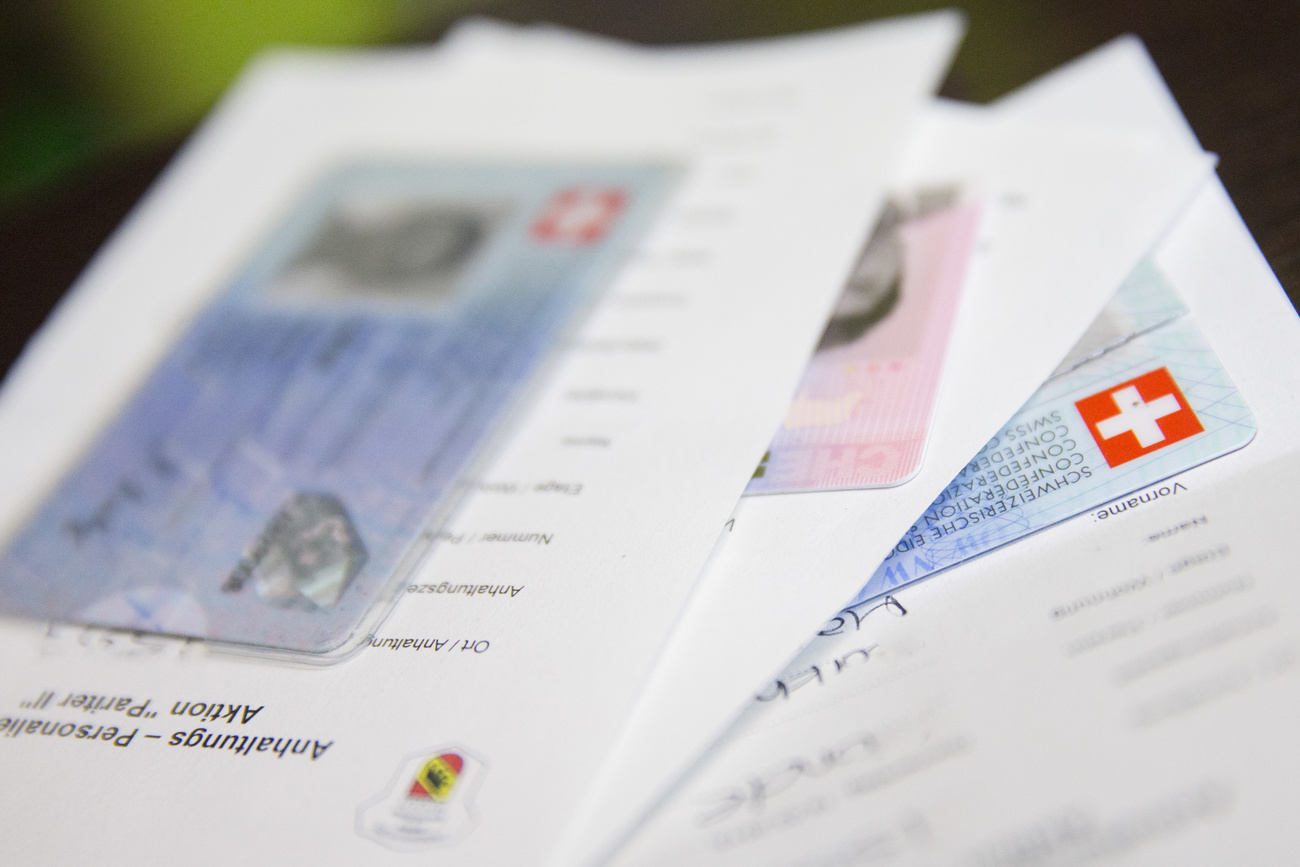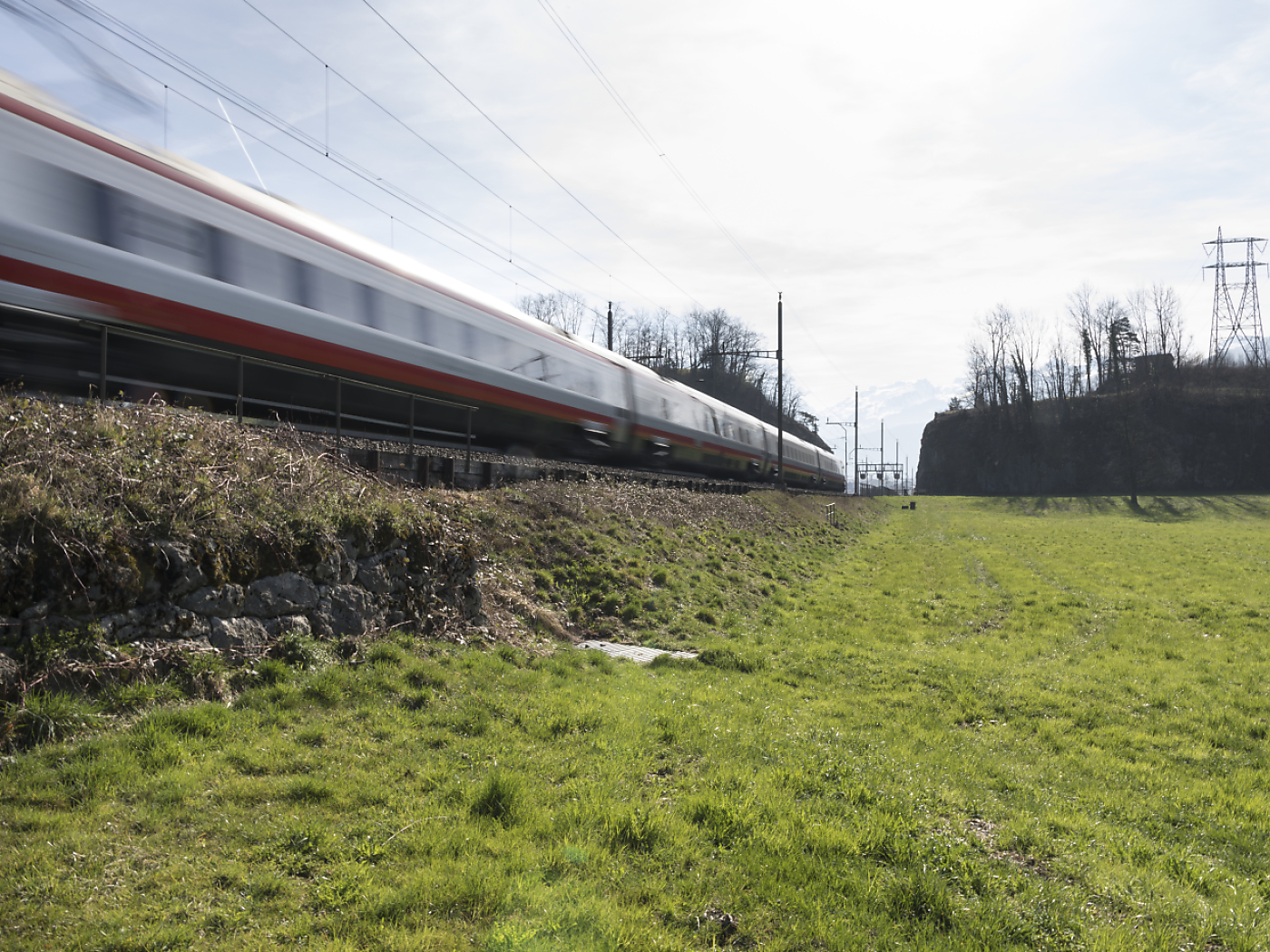Swiss digital ID scheme could begin in 2026

A new voluntary electronic identity (e-ID) scheme, overseen by the Swiss authorities, could be launched as early as 2026 in the Alpine country. The federal government unveiled its proposal on Wednesday following a consultation process.
Almost three years after Swiss voters rejected a private e-ID scheme at the ballot box, the Federal Council has presented its proposal for the introduction of a state-run system on Wednesday. It now goes to parliament to be discussed.
The government’s new e-ID proposal is not a copy of the failed bill, Justice Minister Elisabeth Baume-Schneider told the media in Bern on Wednesday. “It has been revised from A to Z,” she said.
A wide range of opinions have been considered during the drafting process. Over one hundred comments were received during the consultation process.
+ Digital identity scheme shot down by voters over data privacy concerns
Baume-Schneider said the new federal law on electronic proof of identity and other electronic evidence (BGEID) should enable users to identify themselves digitally in a secure, quick and uncomplicated manner in future. The proposal takes security and data protection concerns into account, and most importantly, “the solution is 100% state-run.”
+ Swiss Abroad give a clear ‘yes’ to a digital ID
The e-ID Act failed in a first attempt at the ballot box in March 2021 where it was rejected by voters in all cantons. A private solution was under discussion at the time. According to polls conducted after the vote, security concerns regarding data protection were a decisive factor behind the “no” vote.
“We will do everything we can to protect the e-ID,” said Baume-Schneider. Citizens have sovereignty over their data and the e-ID is issued exclusively by the state. “Private companies no longer play a role in issuing the e-ID,” said Michael Schöll, director of the Federal Office of Justice.
The E-ID will be voluntary and free of charge. All services provided by the authorities to use an e-ID would continue to be offered in a non-digital format or process. The federal authorities, cantons and communes would have to accept the e-ID when they conduct electronic identification, for example when issuing a confirmation of residence or a copy of a debt collection register. The e-ID may also be used in the physical world, for example in shops to prove someone’s age when buying alcohol.
According to the Federal Council’s plans, anyone who wants an e-ID simply has to download an app on their smartphone, scan a Swiss-issued ID document with a camera and upload a photograph. The Federal Office of Police (Fedpol) will then check the authenticity of the information which should not take longer than a few minutes, said Schöll.
The government’s message regarding the Federal Act on Electronic Proof of Identity and Other Electronic Evidence (BGEID) will be dealt with in parliament roughly six months later than announced at the beginning of December 2022. Following the consultation process, the bill was amended several times.
For example, the Federal Council proposes that the infrastructure required to operate the e-ID can also be used by cantonal and communal authorities as well as private individuals to issue electronic proof of identity. The app should also be accessible to people with disabilities without restriction. Also, the e-ID should be issued online and at passport offices.
Users of the future e-ID scheme should have the widest possible control over their data, says the government. The e-ID is to be stored exclusively on a user’s smartphone.
The Federal Council plans to offer the e-ID from 2026. To be ready in time, preparatory work has already started to develop the necessary infrastructure. The government has set aside CHF182 million for the 2023-2028 period for the development and operation of the infrastructure, the issue of the e-ID and the pilot projects. The operating costs from 2029 are estimated at around CHF25 million a year.
This news story has been written and carefully fact-checked by an external editorial team. At SWI swissinfo.ch we select the most relevant news for an international audience and use automatic translation tools such as DeepL to translate it into English. Providing you with automatically translated news gives us the time to write more in-depth articles. You can find them here.
If you want to know more about how we work, have a look here, and if you have feedback on this news story please write to english@swissinfo.ch.

In compliance with the JTI standards
More: SWI swissinfo.ch certified by the Journalism Trust Initiative


















You can find an overview of ongoing debates with our journalists here . Please join us!
If you want to start a conversation about a topic raised in this article or want to report factual errors, email us at english@swissinfo.ch.